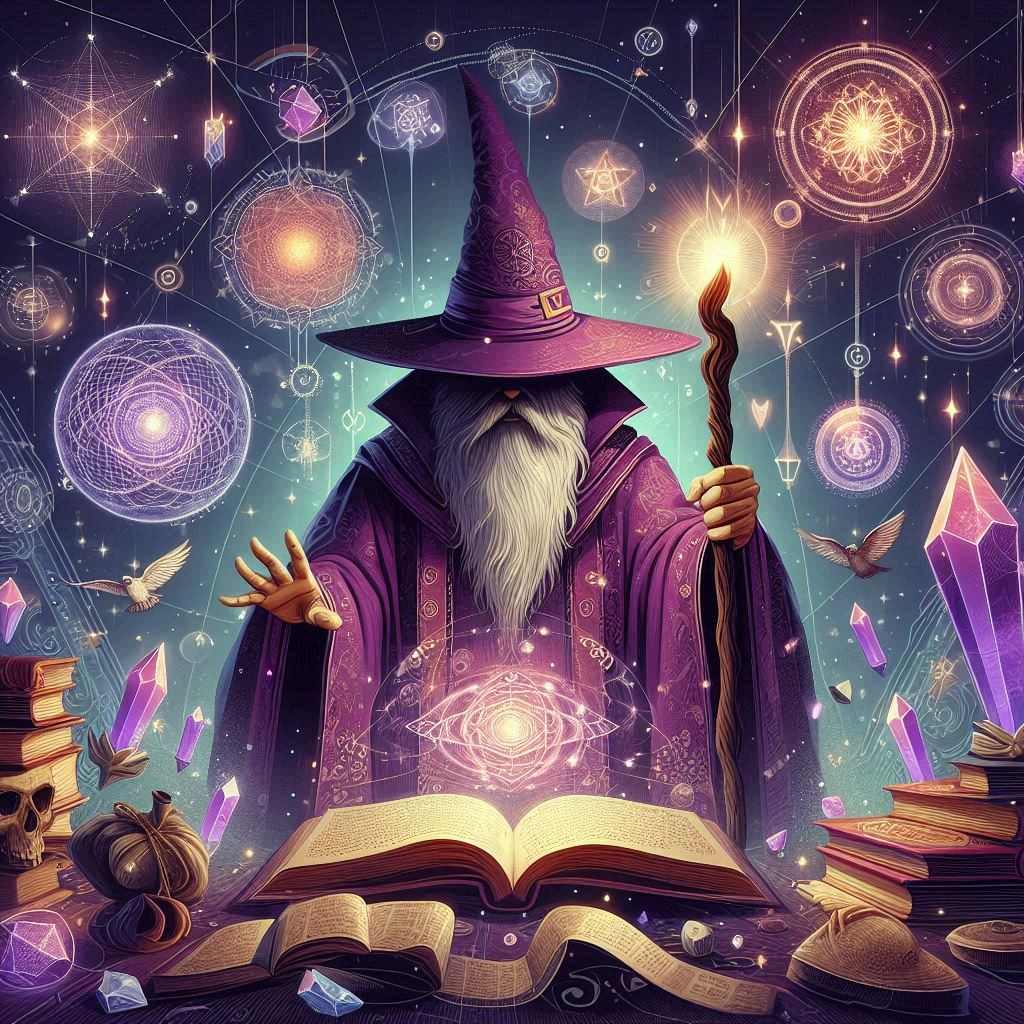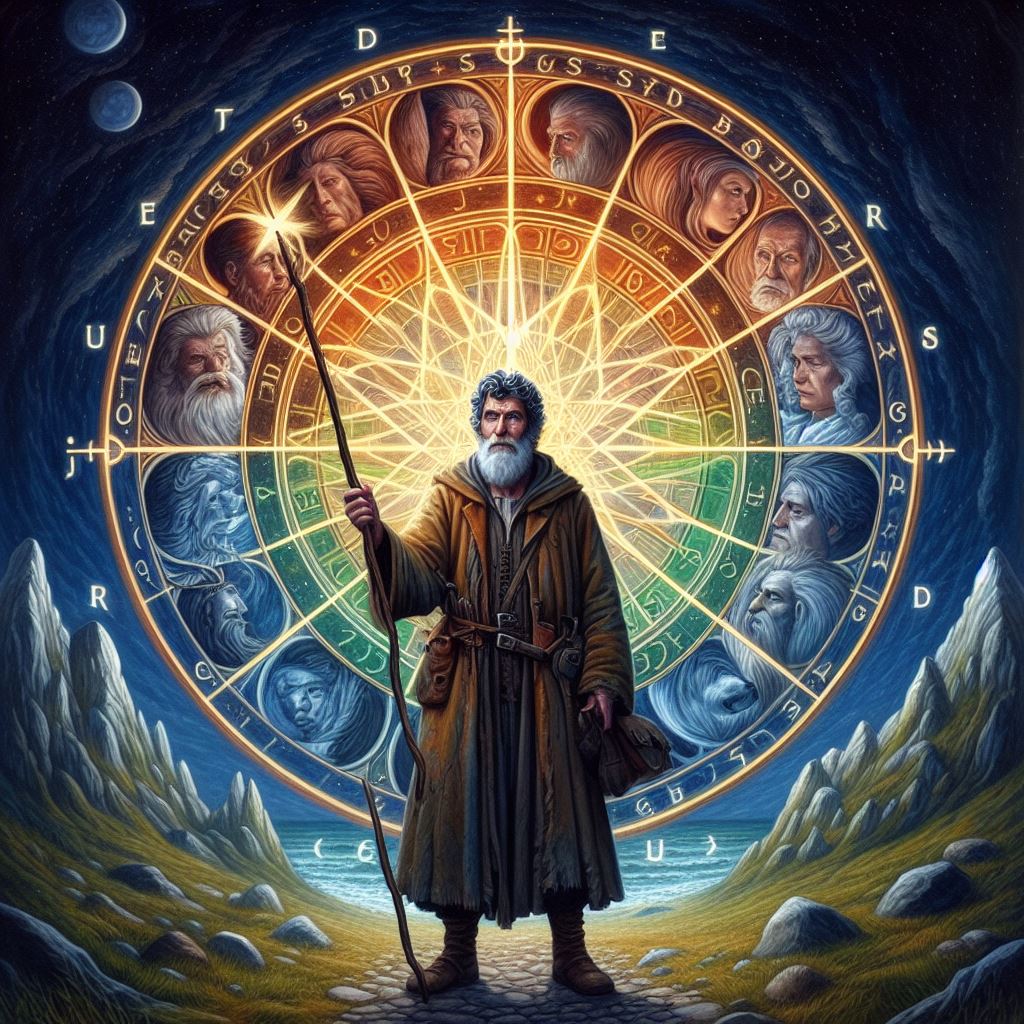What is Magic?
Etymologically the word comes from the Persian Magi who were the priests and wisdom keepers of Zoroastrianism. These were parallel to the Druid of the Celts, whose word for their metaphysical art was draiocht. “Magic” is the derivative word that made the leap across time and culture to still be with us today.
It is common to add a “k” to magic (magick) in order to distinguish the real thing from the stage art. I rarely do this, because I am a contrarian defiant. I use the original spelling and apply the original definition, for it is the card tricksters and illusionists who are squatting on the word for my art; I’m not obligated to change anything.
Defining Magic
A really simplistic definition I got from Dr. Theresa Bullard is:
Magic is turning nothing into something or turning something into something else.
In other words, according to Bullard, it is the art of creation and transformation. I would add a third word, saying magic is the art of creation, transformation, and preservation.
Magic is an unexplained and, by academic standards, largely unexplainable phenomenon that can produce effects, results, and circumstances many consider impossible. It is a power and force existing independent of human interaction, but that can be accessed by sentient beings.
As a pursuit one engages in, magic is the application of specific methods and certain attributes to perform work and achieve results while avoiding the typical framework of cause-effect. Thus it has been described by Crowley, Fortune, Regardie, and others as “the art… of causing change to occur… in accordance with one’s will” and appended by the Hermetic Order of the Golden Dawn to clarify this change could take place in consciousness, in the material world, or (most often) in both. I believe the HOGD also added the point that how magic works is “not currently understood by academic science”.
The above paragraphs form a pretty coherent definition of what magic is as a practice, yet I would add preservation alongside the causing of change, for sometimes we use magic to preserve or protect the current state of things. Hereafter we have something like this:
Magic is a mysterious power and force that can be tapped into by the human being (mind and body) in order to perform work, often without personally enduring the trappings of the physical chain of events, or cause and effect. This work is enacted using specific methods and personal attributes with the aim of causing change or preventing change in a target that is subjective, objective, or both.
Within this context, magic is also a skillset based on pre-requisite skills and sets of skill, that can be learned by anyone, though individual, baseline aptitude may vary from one person to another. Ideally, magic is also a vehicle for self-discovery and refinement and the path to enlightenment and personal power.

Magic as an Art Form
Magic is the ultimate art, or truest form of expression available to the human being, for it can be performed with great pomp and flare, while costumed and equipped with elaborate and lovely utensils, or enacted with nothing but the hands and heart. It can even be done without a motion or stroke, formed and molded in the mind’s eye and splashed vividly onto the fabric of the ether. However it is done, the final creation is a part of your Highest and Lowest aspects of being, working in harmony and laid out by the One in the Middle.
but above all…
Magic is a connection you make with that part of yourself that is in turn connected to everyone else and to all points in space and time.
It is the thing you do in secret when something must change or be protected or when new knowledge must be gained, and in this doing you somehow know a difference has been made.
She (magic) is that mysterious yet ever-known presence in nature, perhaps moving through the trees on a summer night’s breeze. She prowls the border between sleep and awake and leads you into and back out of the darkest shadows, and through the most sublime and fragrant gardens.
He (magic) is the ubiquitous mover and shaker, the chance that cannot be missed, and the risk you dare not refrain from taking. He ignites between your eyes in the midst of a sudden and righteous anger.
Read Next: How to Study and Practice Magic
